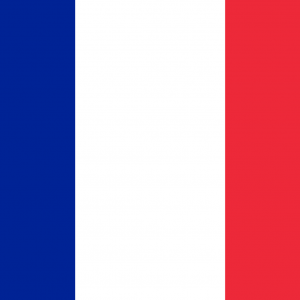STUDY IN USA
- USA
- About USA
- Why study in USA
- Universities and colleges in USA
- United States of America (USA) Visa Requirements
- Capital: Washington D.C.
- Language: English
- Currency: United States Dollar (USD)
- HDI: 0.924 (13th)
- Type of University: Public + Private
- No of Universities: 4000 +
Stay back and PR
12 months Optional Practical Training (OPT), Under STEM category extendable up to 24 months
Approx. Living Cost
$10000 to $12000 per year
Intakes
January-August
Language tests accepted
IELTS and TOFEL
The united state of America is an enormous country of North America generally known as the, “US” The United State. In present, it has population over 318 million .48 states excluding Alaska and Hawaii are surrounded by the Atlantic Ocean to the East and the Pacific Ocean to the west. USA land tract is joint with Mexico to the South and Canada to the North. It also shares naval borders with Cuba, Russia and the Bahamas. It is the world’s third-largest populace country after China and India and everybody’s dreamland when it comes to studying abroad plans.
Alaska is the largest state that was purchased by the United State from The Russian Empire on March 30, 1867, for 7.2 million U.S. dollars. The weather of the US varies from shore to shore due to variation in latitude and geological features along with mountains. The United State is a federal republic containing 50 states and its government power lies in the constitution of the United State makes it the perfect location for overseas educations.
The legal structure and law of the U.S. are intricate, so it is must to know the rules properly. The dollar is the official currency United State that conversation rates vary on a daily bases and are available online. Higher education in the U.S. is the enticing feature for worldwide youth generation. With the range of accessible colleges / Universities and courses in the U.S. , aspirants are sure to catch the exact fit for their educational needs.
Key Attractions:
Ranked as No 1 for education quality
World’s strongest economy
Numerous study options
Flexible education system
Availability of numerous scholarships and fellowships
On-campus work permits with min wage
Leaders in science and the latest technologies
Home to many multinational companies
American universities are widely known for the quality of their teaching and research. The United States is the number one and largest destination for international students seeking higher education overseas or study abroad. The education system in the USA is the most versatile and flexible higher education system for international students in the world. Today about 30 per cent of all current international students in the world are studying abroad in the (USA) United States of America.
Have you ever wondered what makes U.S. higher education so popular in the world?
Academic Excellence
The U.S. has one of the worlds finest education systems, with excellent programs across all disciplines. At the undergraduate level, outstanding program options are available in conventional subjects as well as professional fields. At the Masters and PhD level, students regularly get the opportunity to work with and learn from some of the finest researchers in the world. Qualifications awarded by U.S. universities are recognized throughout the world for its academic brilliance.
Diversity of Education Opportunities
The U.S. higher education system has lots to offer every student. The program structure lays equal emphasis on building a strong theoretical base along with importance on practical, employment-related skills. If you are looking at studying an unusual or specific program like gerontology you will have more than one program to choose from in the U.S.!
Cutting-Edge Technology
U.S. universities are world leaders in terms of technology and scientific techniques and are committed to providing the same resources to students. The emphasis is to acquaint students with the latest in the field of science, engineering and related fields. The end result is work-ready graduates with appropriate skills using the most recent technology.
Opportunity for Research, Teaching and Training
In the U.S., at the graduate level students gain valuable experience in research and teaching through the many assistantship programs available. These assistantships also help students finance their higher education in the USA. The practical experience gained is extremely useful for future careers in teaching and research.
Flexibility
The U.S. higher education system offers many course choices within a program and the opportunity to change majors or opt for multiple specializations. At the advanced stages of an undergraduate program, a student can tailor the program to meet specific career aspirations like combining courses in contemporary jazz music with engineering! At the graduate level, you can make your own timetable and complete course credits at a comfortable pace within the stipulated time frame.
Support Services for International Students
U.S. universities welcome international students for pursuing higher education in the USA and have support systems to help students adjust comfortably to life in the U.S. Services at the international student office help students transition to the new environment. Support is offered through the year from organizing orientation programs to assistance with academic writing and building resumes as students get ready to graduate.
Campus Life
U.S. universities offer a diverse choice of academic, cultural and athletic activities to choose from which not only enrich the educational experience but also help students make new friends and become global citizens. Your university may also have a cricket team in addition to fraternities, regional and ethnic clubs.
Global Education
Academic study and experience from a U.S. university have a very positive reputation in the international job market. U.S. education dramatically enhances students long-term career goals. The experience builds critical thinking skills, develops self-confidence and cross-cultural skills and all of these attributes are highly valued by employers worldwide.
- California Institute of Technology
- Stanford University
- Massachusetts Institute of Technology
- Princeton University
- Harvard University
- Yale University
- University of Chicago
- University of Pennsylvania
- Johns Hopkins University
- University of California, Berkeley
- Columbia University
- University of California, Los Angeles
- Cornell University
- Duke University
- University of Michigan-Ann Arbor
- Northwestern University
- University of Washington
- Carnegie Mellon University
- New York University
- University of California, San Diego
- Georgia Institute of Technology
- The University of Texas at Austin
- The University of Illinois at Urbana-Champaign
- University of Wisconsin-Madison
- Washington University in St Louis
- Brown University
- The University of North Carolina at Chapel Hill
- University of California, Davis
- University of California, Santa Barbara
- Boston University
- University of Southern California
- Ohio State University (Main campus)
- Penn State (Main campus)
- University of Minnesota
- Emory University
- Michigan State University
- Purdue University West Lafayette
- University of Maryland, College Park
- Dartmouth College
- University of California, Irvine
- Georgetown University
- University of Arizona
- Rice University
- University of Virginia (Main campus)
- University of Pittsburgh-Pittsburgh campus
- Vanderbilt University
- Case Western Reserve University
- University of Colorado Boulder
- Indiana University
- Tufts University
- Arizona State University
- University of Notre Dame
- Rutgers, the State University of New Jersey
- The University of Alabama at Birmingham
- Northeastern University
- University of Rochester
- University of Florida
- Texas A&M University
- University of California, Santa Cruz
- George Washington University
- Brandeis University
- The University of Hawai’i at Mānoa
- Howard University
- University of Iowa
- University of Massachusetts
- University of Miami
- University of South Florida (Tampa)
- University of Utah
- Virginia Polytechnic Institute and State University
- Wake Forest University
- William & Mary
- University at Buffalo
- University of California, Riverside
- University of Cincinnati
- University of Delaware
- Florida State University
- George Mason University
- The University of Illinois at Chicago
- University of Oregon
- Oregon Health and Science University
- Syracuse University
- Boston College
- Colorado School of Mines
- University of New Mexico (Main campus)
- North Carolina State University
- Nova Southeastern University
- Rush University
- Stony Brook University
- Temple University
- The University of Tennessee-Knoxville
- The University of Texas at Dallas
- Tulane University
- University of Alaska Fairbanks
- University of California, Merced
- Clark University
- University of Connecticut
- University of Denver
- Hofstra University
- Iowa State University
- Oregon State University
Foreign nationals require a visa to come into the US for study purposes, student visas are issued to students who have been accepted into a recognized program of study in an approved higher institution.
Student visas are issued depending on the course they select and the university they choose to attend. Long term study options need an ‘F’ visa while short term study options need an ‘M’ visa.
Application process:
- The student must first be accepted into a SEVP recognized institution in the US
- After the I-20 has been issued by the school, the student is required to register and a fee to SEVIS and present both the I-20 and their SEVIS fee payment receipt at the Embassy or consulate.
- Any other dependents (spouse or wards) also need to obtain separate I-20’s for each of them but do not need to pay the SEVIS fee.
- Complete the online application Form DS-160 and print out the confirmation document
- A passport photo must be uploaded. This passport must meet the photo guidelines provided by US immigration.
- Pay the visa fee
- Book a visa interview appointment
Attend the interview with the following important documents:
- A valid passport or travel document (valid for up to 6 months)
- Visa Application Form (DS-160) and Confirmation page
- Visa fee payment receipt
- SEVIS fee payment receipt
- Form I-20 (signed and dated with the necessary information by the University)
- Academic credentials; Transcripts, Diplomas, Certificates, and Certifications
- Proof that student plans to return back home after completing their education in the US
- Proof of financial capability for study expenses and living costs for the duration of their program.
This page only contains condensed information, if you would like to get a consultation session, please click the button below to apply for consultation with our certified student counsellor
Book Here








